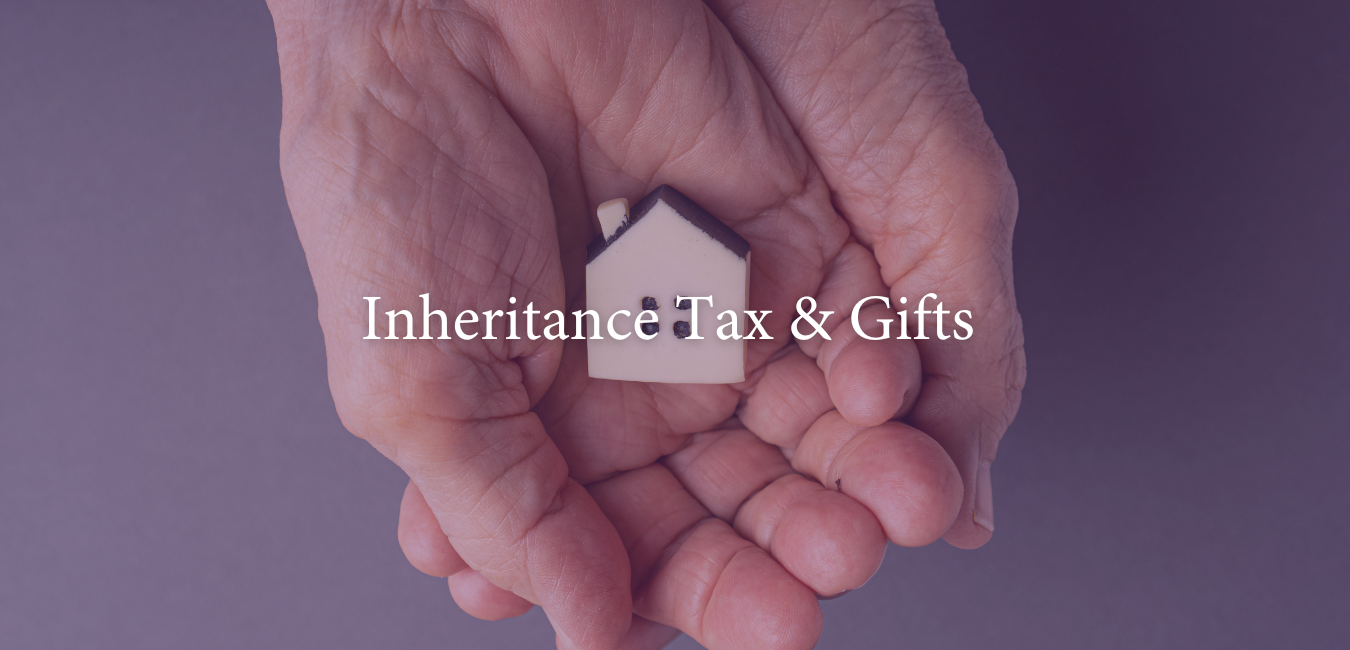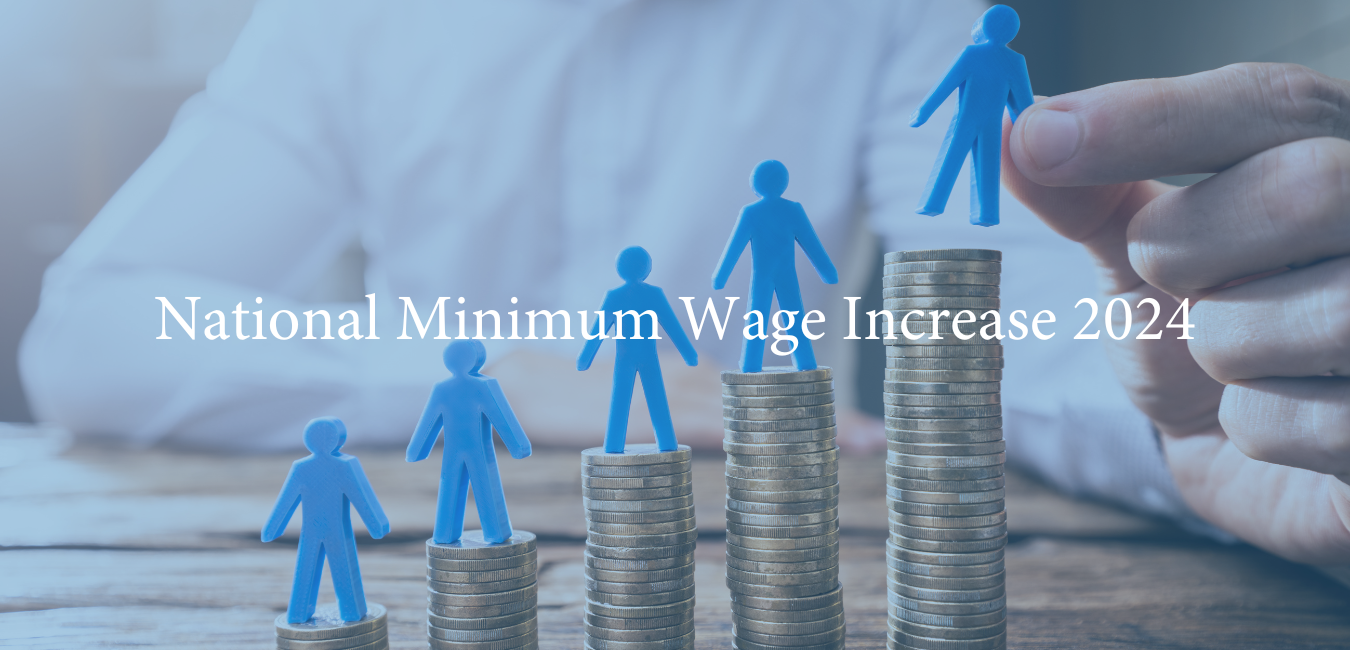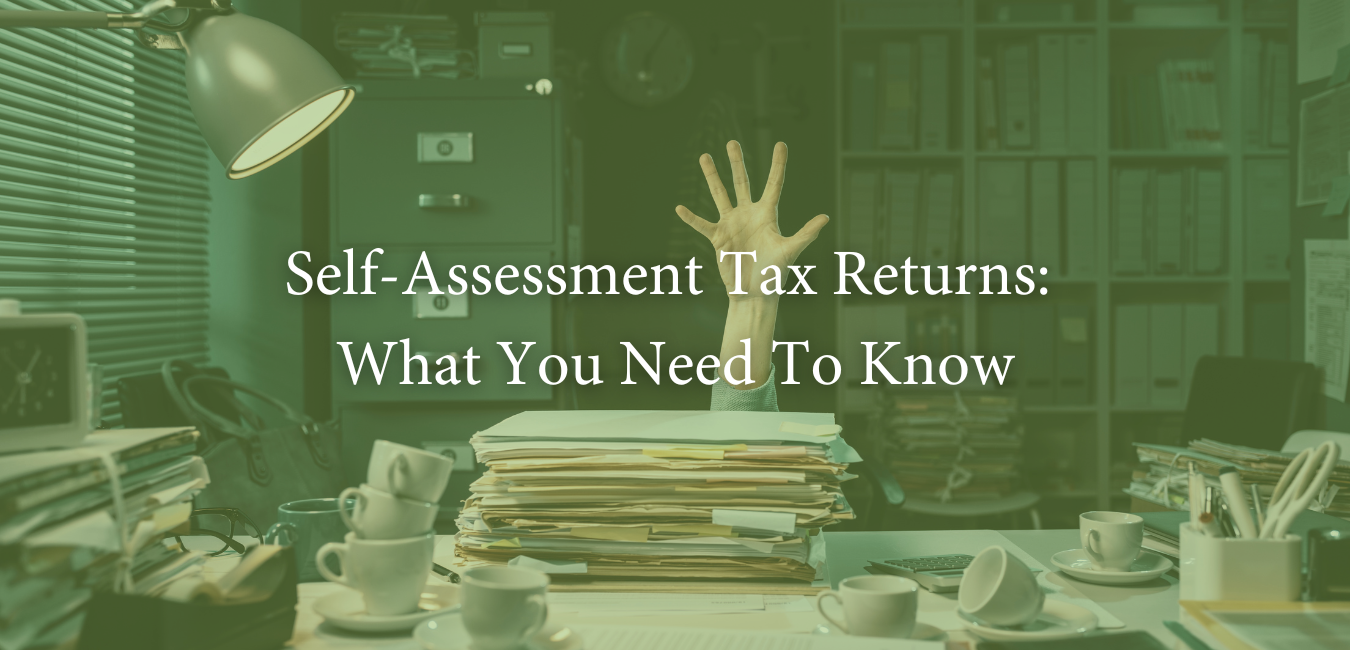Inheritance Tax & Gifts
Inheritance Tax & Gifts
Cash gifts can be a huge financial help for your loved ones, both while you’re living and after you’ve passed away. But what are the tax implications of giving financial gifts? And what about leaving an inheritance?
We explore the different ways to pass on your wealth tax efficiently and maximise its value for your beneficiaries.
What is Inheritance Tax?
Inheritance tax is a tax on the estate acquired (the property, money, and possessions) of someone who has passed away. The value of the estate will dictate whether inheritance tax is paid or not.
To work out the value of an estate, you'll need to calculate what assets the person had when they died (cash in the bank, investments, property or business, vehicles, pay-outs from life insurance policies and so on), minus any debts.
In the current tax year, 2023/24, no inheritance tax is due on the first £325,000 of the chargeable estate, with 40% normally being charged on any amount above.
There are other exemptions available including business property relief and agricultural property relief. If there's tax to pay, the estate will theoretically be taxed at 40% on the chargeable estate above the £325,000 threshold (or 36% if you leave at least 10% of the value after any deductions to a charity in your will).
Anything left to a spouse or civil partner is EXEMPT from inheritance tax.
Can you leave property to family?
The answer is yes, you can choose to gift your home to a family member after you’ve passed away.
If you pass a home to your husband, wife or civil partner when you die. There’s no inheritance tax to pay.
If you pass a home to another member of your family, you’ll need to name who you would like to inherit the property as a beneficiary in your will. Whether they’ll need to pay inheritance tax on this asset will depend on the price of your property.
If you own your home (or a share in it) your tax-free threshold can increase to £500,000 if you leave it to your children (including adopted, foster or stepchildren) or grandchildren, as long as the value of your estate is less than £2 million.
This is because you will then have two tax-free allowances:
- £325,000 – this is the basic inheritance tax allowance that everyone gets, which still applies.
- £175,000 – since 2017, everyone has also been able to take advantage of something called the 'residence nil-rate band', commonly known as the 'main residence' band. This is an additional allowance you'll receive ON TOP of the existing £325,000 inheritance tax allowance if you pass on your main residence to your children (including adopted, foster and stepchildren) or grandchildren.
The 7 year rule
You can minimise inheritance tax being paid by gifting your money while you’re still alive.
The 7-year rule in inheritance tax applies specifically to gifts. “Gifts” in this sense are generally possessions, money, and property. The gift of some assets including property and shares can often give rise to a Capital Gains tax liability, so please take advice on before any gifts are made.
If you die within 7 years of gifting the asset, it will count towards the value of your estate and the £325,000 allowance.
After 7 years, the gift does not count towards the value of your estate. This rule is why, very often, parents will give their children or grandchildren gifts long before they believe they will pass away, in order to avoid paying tax on the gift.
If you give a gift and then pass away, how long after you made the gift will dictate whether inheritance tax will need to be paid.
Years between gift and death:
3 to 4 years 32%
4 to 5 years 24%
5 to 6 years 16%
6 to 7 years 8%
7 or more 0%
What counts as a gift?
Gifts can include:
- money
- household and personal goods, for example, furniture, jewellery or antiques
- a house, land or buildings
- stocks and shares
You can also gift your loved ones money after you’ve passed away by leaving them an inheritance in your will.
Alternatively, you can do this by taking out a life insurance policy and naming whoever you’d like to benefit from your policy as a beneficiary. If you pass away during the term of your policy, a pay-out will be made and your loved ones will receive their inheritance. Speak to your financial advisor for advice on this area.
How much money can you gift tax free?
Everyone is permitted by HMRC to gift £3,000 (tax-free) each tax year, this is known as an annual exemption.
This is £3,000 in total, so if you’re looking to give a cash gift to multiple people you will need to distribute £3,000 between them to not pay tax on this gift. If you do not use your annual exemption, this can be rolled over into the following year.
Whether a cash gift will be taxed will depend on certain factors, such as:
- Your relationship to the beneficiary
- The occasion (birthday, wedding, paying living expenses etc)
- The amount given
Using allowances to give tax free gifts
Legally, you can gift a family member as much as you wish. However, there may be tax implications if the amount exceeds your annual exemption.
If you are gifting money to your spouse, you’re permitted to gift as much money as you’d like throughout your lifetime together without having to pay tax on these gifts (as long as you’re both permanent UK residents).
If gifting money to anyone else in your family, you’ll need to stick within your £3,000 annual exemption for these gifts to be tax-free. Anything over this amount could be subject to tax. Also take caution to ensure that no capital gains tax liability arises on these gifts.
You’re also permitted to make tax free payments for a handful of exempt gifts:
- Small gifts (up to the value of £250)
- Wedding or civil ceremony gifts
- Gifts to charities and political parties
- Annual gifts out of income
Small Gift Allowance
You can give as many gifts of up to £250 per person as you want each tax year, if you have not used another allowance on the same person.
Birthday or Christmas gifts you give from your regular income are exempt from inheritance tax.
Gifts for weddings or civil partnerships
Each tax year, you can give a tax-free gift to someone who is getting married or starting a civil partnership. You can give up to:
- £5,000 to a child
- £2,500 to a grandchild or great-grandchild
- £1,000 to any other person
If you’re giving gifts to the same person, you can combine a wedding gift allowance with any other allowance, except for the small gift allowance. For example, you can give your child a wedding gift of £5,000 as well as £3,000 using your annual exemption in the same tax year.
Regular gifts out of income
You can make regular payments to another person, for example to help with their living costs. There’s no limit to how much you can give tax free, as long as:
- you can afford the payments after meeting your usual living costs
- you make a commitment and pay from your regular monthly income
These are known as ‘normal expenditure out of income’. They can include:
- paying rent for your child
- paying into a savings account for a child under 18
- giving financial support to an elderly relative
There’s also no inheritance tax to pay on any gifts you give to charities or political parties.
Other taxes
After you inherit, you may have to pay:
- Income Tax on any profit you earn from an inheritance (for example, dividends on shares, interest, or rental income from a property).
- Capital Gains Tax when you sell anything you inherited.
- Joint property and bank accounts
You should keep a full record of gifts and this should be provided to your accountant and solicitor. Every individual should have a will and its is good practice to review this every 3-5 years or if circumstances change.
This article is for information only and does not constitute legal/financial advice. Inheritance tax is a complex issue, and the information and opinions contained in this article are not intended to be comprehensive, nor to provide legal advice. No responsibility for its accuracy or correctness is assumed by GGM Accountancy Ltd. Professional legal advice should be obtained before taking, or refraining from taking, any action as a result of this article.
Menu
Get In Touch
Tel: 01733 247500
Email: admin@ggmaccountancy.co.uk
Office: Unit 12, Broadway Shopping Centre
Malting Square, Yaxley, Peterborough
PE7 3JJ
Sign Up To Our Newsletter
Contact Us
We will get back to you as soon as possible
Please try again later
Proud Partners Of
Menu
Get In Touch
Tel: 01733 247500
Email: admin@ggmaccountancy.co.uk
Office: 42 Tyndall Court, Commerce Road
Lynch Wood, Peterborough, PE2 6LR
Follow Us On Social Media
Sign Up To Our Newsletter
Contact Us
We will get back to you as soon as possible
Please try again later
All Rights Reserved | GGM Accountancy Ltd | Website designed by Onelink Media









